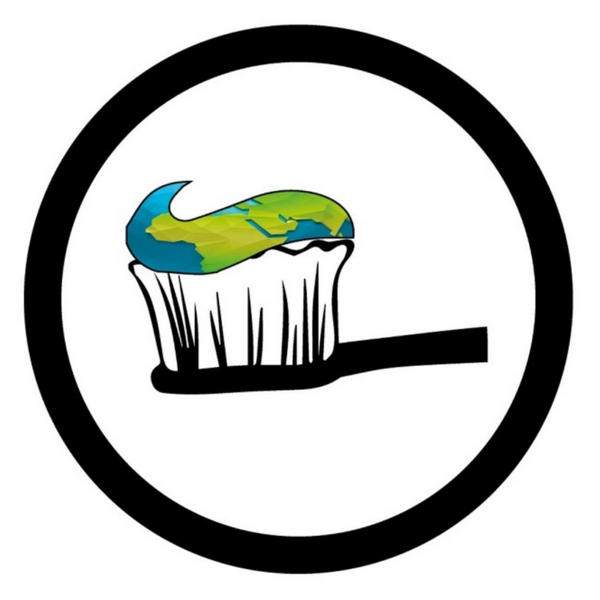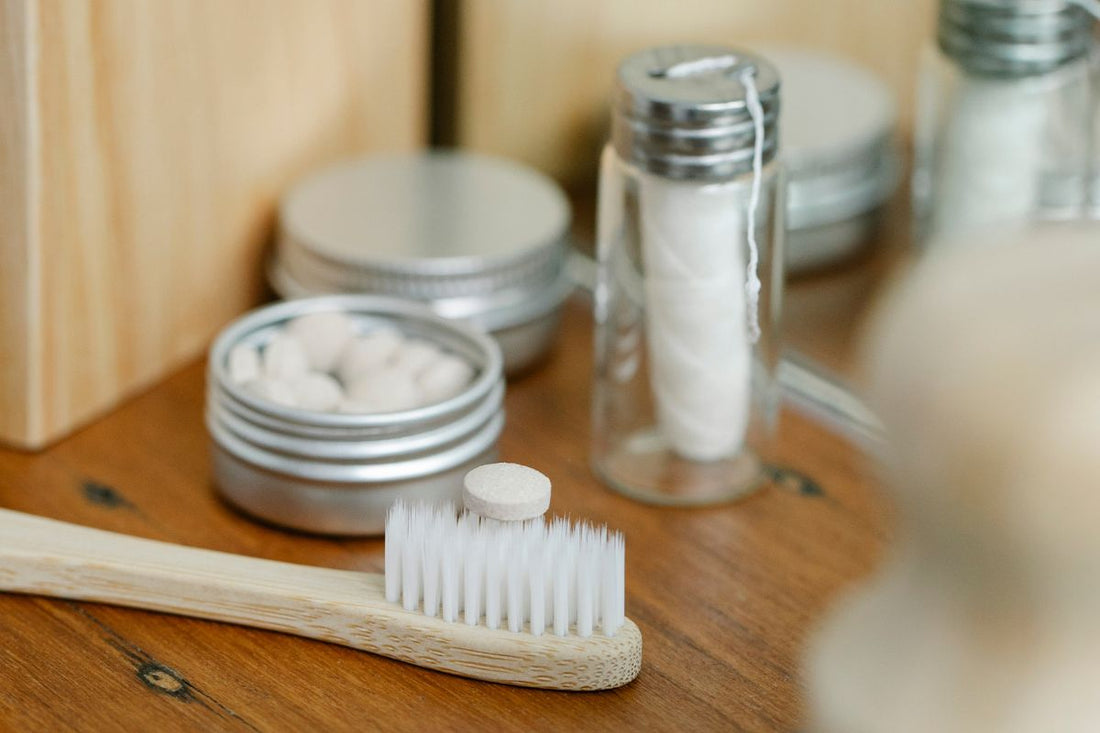Unlike traditional toothpaste, which is dispensed in a tube, toothpaste tablets are solid forms of toothpaste designed to be chewed or crushed between the teeth to create a foamy paste, which is then used to brush the teeth as normal. Toothpaste tablets offer a number of benefits, but how do they compare to regular toothpaste? In this guide, we'll compare and contrast the two types of toothpaste to help you understand the key differences and pros and cons of each, so you can choose the right paste for you.
Toothpaste Tablets vs Regular Toothpaste
Existing research comparing the effectiveness of toothpaste tablets versus traditional toothpaste is limited, what we do know is that toothpaste tablets containing fluoride are as effective as traditional toothpaste in reducing plaque and preventing gingivitis, making them a viable natural alternative to the tube. Let's look at the key components and function of toothpaste in more detail, and how the two options compare.
Short for time? Here's a quick overview of what both types offer in terms of their effectiveness at looking after your teeth, environmental impact, and convenience.
| Key Features/Functions | Traditional Toothpaste | Toothpaste Tablets |
|---|---|---|
| Plaque Removal | ✔️ | ✔️ |
| Cavity Prevention | ✔️ | ✔️ |
| Fluoride Content | ✔️ | ✔️ |
| Environmental Sustainability | ❌ | ✔️ |
| Packaging | Plastic | Eco-friendly Materials |
| Travel-Friendliness | ❌ | ✔️ |
| Convenience | ❌ | ✔️ |
| Accurate Dose | ❌ | ✔️ |
| Cleanliness | Prone to Mess | Mess-Free |
| Hygienic | ❌ | ✔️ |
| Cost | Cheap | More Expensive |
1. Fluoride Content
One concern with toothpaste tablets is whether they contain adequate fluoride concentrations to provide effective cavity protection, in particular as lots of brands offer a non-fluoride option. And there's good reason behind this concern: fluoride removes tartar, reduces plaque, protects teeth and remineralises weakened tooth areas. Its absence therefore puts you at risk of poor oral health and preventable tooth and gum diseases. The good news is that most toothpaste tablets brands offer variations with fluoride in, so you don't need to compromise.
While fluoride is safe and beneficial for most people, there are certain individuals who may need to avoid excessive fluoride exposure. In this case, you could use non-fluoride variations of toothpaste tablets to clean your teeth - just make sure to consult with your dentist who can include them as part of a dental routine.
2. Plaque Removal
In addition to being as effective as traditional toothpaste in reducing plaque and preventing gingivitis, one 2022 study found that because chewable toothpaste tablets are easier for children to use, and the structure of toothpaste is different, it has a higher plaque removal efficacy than conventional toothpaste. In other words, in both adults and children, plaque removal is achieved whether you use regular toothpaste or toothpaste tablets, making the latter a safe and effective alternative for your oral hygiene.
3. Environmental Impact
In addition to sharing the same benefits as regular toothpaste, toothpaste tablets are usually sold in glass jars or recyclable bottles. This is better for the environment than regular toothpaste which is made from non-recyclable and non-biodegradable materials such as plastic and aluminium.
The ingredients in toothpaste tablets tend to be the same as regular toothpaste with one important exception: microplastics. Roughly half of all toothpastes contain microplastics which contribute to harmful water pollution, whereas toothpaste tablets tend to avoid harmful ingredients and preservatives altogether.

4. Travel-Friendliness
Toothpaste tablets are lightweight, compact, and leak-free as they contain no liquid. This makes them perfect for travel as there's no mess, and as an added bonus, you can take toothpaste tablets on a plane in your carry-on!
You can even chew toothpaste tablets on-the-go, like breath mints! This won't clean your teeth as thoroughly as with a toothbrush, but it offers a good alternative for when you want to freshen up.
5. Accurate Dosage
Using a ‘pea-sized amount’ of toothpaste is the recommended amount of toothpaste for adults and children aged 3 years and up. However, most adults and children use more toothpaste than this, with one study finding that the majority of parents dosed substantially more than recommended.
As Dr. Gao Jye, a dentist based in Malaysia, explains: using more than a pea-sized amount of toothpaste poses significant risk to children who haven't yet developed adult teeth. This is because fluoride, when ingested in large amounts, can cause a condition known as dental fluorosis on the developing teeth.
Toothpaste tablets, on the other hand, contain the perfect amount of ingredients for one brushing session. In other words, you aren't at risk of consuming more toothpaste than recommended as each tablet contains the exact right amount for adults and children aged 3 and above.

6. Hygiene & Cleanliness
Regular toothpaste is prone to leaving marks and dried paste around our tubes, toothbrushes and sink. Toothpaste tablets, on the other hand, won't cause spillages or leaks.
In terms of hygiene, toothpaste tablets also come out on top. If you're sharing a toothpaste tube with others, you're at risk of sharing germs and bacteria. For example, one study found that sharing toothpaste is linked with the spread of COVID-19.
Since toothpaste tablets are individually portioned, there's no need to squeeze toothpaste out of a shared tube. This helps prevent the spread of germs or bacteria between users, especially in shared living spaces.
The dry environment that toothpaste tablets are stored in also prevents the potential growth of mould or bacteria that can occur in traditional toothpaste tubes, particularly if the cap is not closed properly or if the toothpaste is exposed to excess moisture.
7. Cost
Toothpaste tablets tends to be more expensive than traditional toothpaste on both an upfront and per-use basis, although this can vary depending on the brand and quantity purchased. Buying toothpaste tablets in bulk or larger quantities can often result in cost savings per unit.
While a single toothpaste tablet may cost more than a pea-sized amount of traditional toothpaste, the actual cost per use can be lower, depending on how much toothpaste is typically used per brushing session. For instance, we know most people use more traditional toothpaste per brush than needed, while toothpaste tablets can help you get the right amount every time.
Brush Fresh Co. is founded and run by a group of UK-based dentists, who specialise in environmentally-friendly and sustainable dental products. From biodegradable bamboo toothbrushes to zero waste toothbrush tablets, our product range has been designed to put both your dental health and the environment first. For more information and dental care advice, head over to our blog page or get in contact with us here.

